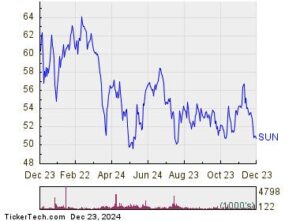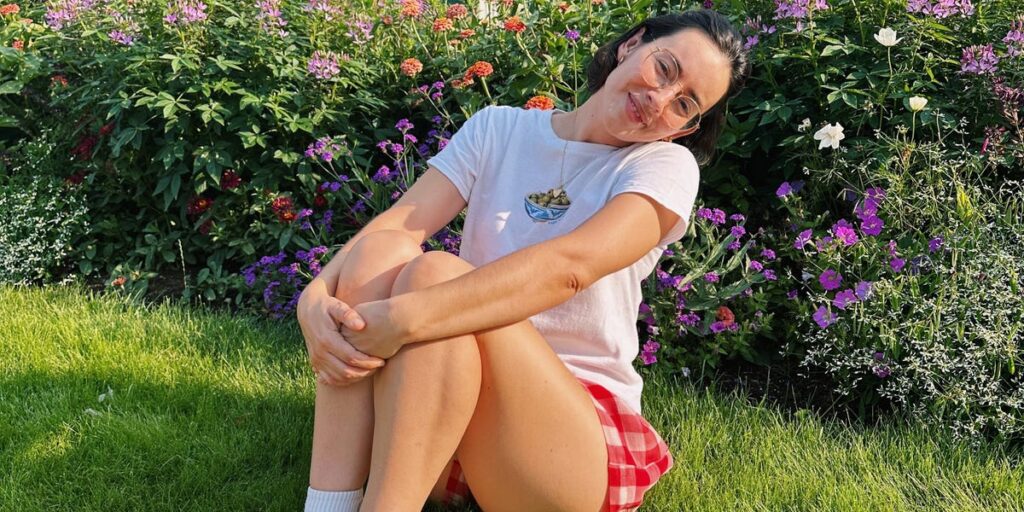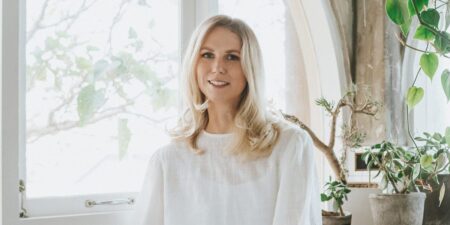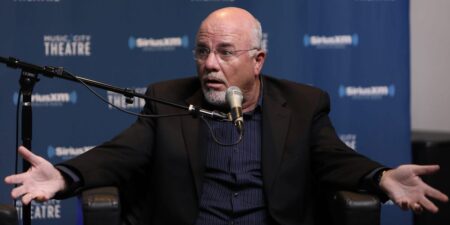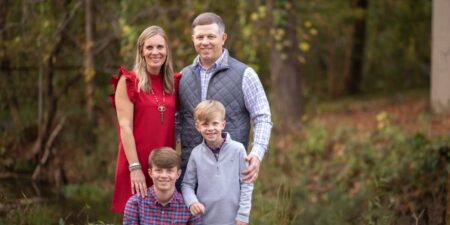- Madalin Giorgetta, 35, used to sell a fitness guide to help women get a curvy, muscular figure.
- In 2019, she realized that her messaging was celebrating thinness, so she switched gears.
- Posting photos of her body online also made Giorgetta constantly fixate on what she saw as flaws.
This as-told-to essay is based on a conversation with Madalin Giorgetta, 35, a fitness influencer-turned-nutritionist who lives in Australia. The following has been edited for length and clarity.
In 2019 I ran a fitness empire and had one million Instagram followers. Today, I’m a nutritionist, but I wouldn’t change it for the world.
I used to get 60,000 likes on a bikini photo, be a GymShark athlete, and sell my own workout program. Once I realized I was endorsing harmful ideas about body image, I shifted gears. Now I get 500 likes on a graphic I made about nutrition science, and I’m just so happy someone is liking my content even though it doesn’t have my body in it.
It all started back in 2016 when I ate crap and didn’t exercise. I ran a social media management business with my sister at the time. My then-boyfriend, now-husband, said it would be good for me to start taking care of my body in a loving way. I started going to the gym, kind of just to prove to him that I could.
I signed up for a fitness app made by Kayla Itsines, a famous personal trainer and fitness influencer who was huge at the time. After about six months, she reposted a before-and-after photo I had uploaded, and I gained about 10,000 followers overnight. Back then, when someone was posted by Kayla, they would blow up.
My following built from there, but I didn’t actually have that much fitness experience. People were asking me for advice, and I was like, “Oh, I’m a fitness person now.”
I built my own program, and people loved it
This was around the time that everyone was sick of burpees and mountain climbers, and the beauty standard was shifting from skinny to curvy but in a muscular way.
The guide I was following was designed to be used at home with minimal equipment, and after a while, I started to get frustrated that my body wasn’t building muscle the way I wanted it to.
I wanted to get stronger and have a muscular body, so I started researching and reading about how to do that. I fell into a rabbit hole about how to build muscle and the best techniques, and I developed a program for myself that incorporated weights.
I was naturally thin, but through the gym, I managed to shape myself into the aspirational aesthetic of the time. I had the solution, essentially.
At this stage, I was influencing but still running my social media business. Influencing was an income stream on the side.
I started selling my guide around April 2017, and it just exploded. It became very big, and then I started working on my own fitness app, working with brands, and gaining more and more followers. I was super excited about it. It took me about a year in total before I was able to quit my social media job and work full time in my fitness job.
My body became my business card, and it led me to an obsessive headspace
I’ve always been very sensitive to people’s criticisms and compared myself to others. But being an influencer magnified those feelings times a thousand.
I became obsessed with everything, from engagement on my posts to the number of guides I was selling to how my body looked in a photo.
Before I got into fitness, I didn’t look at my body that much. My body was my body. But when I started constantly looking at it in the mirror and taking photos of it, I became very fixated on everything.
My body was my business card, and I was very aware that if it looked a certain way, I could get a lot more likes, sell more products, and make more money. I didn’t actually care about the money itself — it was the validation. More money meant that more people liked me.
It was insane how I could grow my business by posting my body in a specific way, and I knew how it had to look. I had to pose in a certain style, have abs, make sure I didn’t eat before I worked out, and have a tan, lashes, Botox, and filler all over my face.
I was super successful, and people wanted to look like me, but I never felt good about how I looked. My phone was filled with rows of selfies of me trying to get the best angle. There was always someone who was more toned, prettier, or doing better financially, and that made me feel like I wasn’t good enough. It ruined my mental health.
I started to interrogate the message I was sending
In 2019, I started to reflect. I visited my sister in San Francisco and tried psilocybin, a psychedelic, which opened my mind to ideas I hadn’t considered — or hadn’t allowed myself to consider.
It prompted me to question what I was promoting and things I’d previously accepted, like why people struggle with weight loss if diets supposedly “work.” Before, I assumed people weren’t trying hard enough or didn’t have the “right” knowledge. But after the experience, I began to recognize the complex factors, such as socioeconomic status, that affect someone’s ability to manage their weight.
I became genuinely interested in reading deeper and understanding. I also felt more open, compassionate, and receptive, so the messages had a deeper impact on me.
A few weeks later, I stumbled across an article about how dieting doesn’t work. It mentioned a study and a few people’s different experiences. Suddenly, it felt so true to me. I just remember crying and thinking, “Oh my God, it doesn’t work. What have I been doing? It’s a scam.”
My content wasn’t specifically about dieting, but I posted before-and-after photos of women who had lost weight and now looked thinner after using my program. I spoke about low-calorie diets, and on my app, I used phrases like “get leaner.” I promoted the idea of “no excuses” when it came to hitting the gym.
I began to interrogate what that language actually meant and the underlying message I was sending. I realized that it was insidious — it’s not saying “become your best self,” it’s saying “become your thinnest self.” It was clear to me that I was telling people that their body wasn’t good enough and needed to change.
It took me a while to come to terms with that emotionally because, naturally, you make excuses for why you did what you did. I feel guilty about so many things I said.
But overall, I felt like I needed to spring into action. I thought: “What can I do to change this?”
I changed my messaging completely and received a lot of hate
I became hyper-fixated on learning about diet culture, fatphobia, and public health.
I quit my work with a supplement company because it had a protein powder called Lean Protein. I was like, “No, I can’t do that.” I stopped working with activewear brands that didn’t sell clothes bigger than a size XL. These deals were thousands of dollars and I was just cutting and cutting them.
My content became centered on anti-diet culture after that, and I received some pretty brutal backlash.
Every post I did would get lots of hate comments, and I lost a lot of followers and friends in the industry, which made me really sad.
Either people weren’t following me for that type of content, or they felt like I was shaming them because I was saying things like, “Ditch your fitness app.” It was kind of creating this vortex of shame and anger, and it was a horrible space to be in.
I felt like people weren’t taking me seriously because I didn’t have the qualifications to back what I was saying, so I decided to study for a Bachelor’s degree in nutrition.
I wish I hadn’t cared so much about what people think
Changing my messaging so suddenly and drastically in front of a huge audience was really difficult, but I don’t regret anything.
I now work as a functional nutritionist, seeing one-to-one clients remotely. I used to be a lot more extreme with my anti-diet stance. Now I’m more centered in my beliefs. I encourage the whole foods diet and eating foods that will fuel your body and satiate you.
I still have a big following on Instagram, but I wouldn’t consider myself an influencer because I very rarely work with brands. I use it as a way to get clients, connect with my community, and share educational content about nutrition and fitness.
I recently started going to the gym again after a five-year break. I stopped going because I couldn’t look at myself in the mirror without thinking, “You look so bad, you don’t have this, you don’t have that.”
I’m proud of my decision, and I feel comfortable with who I am and what I’ve done. My relationships with myself, my body, my partner, and my friends improved too.
I just wish that Madalin back then hadn’t cared so much about what people thought.
Read the full article here






